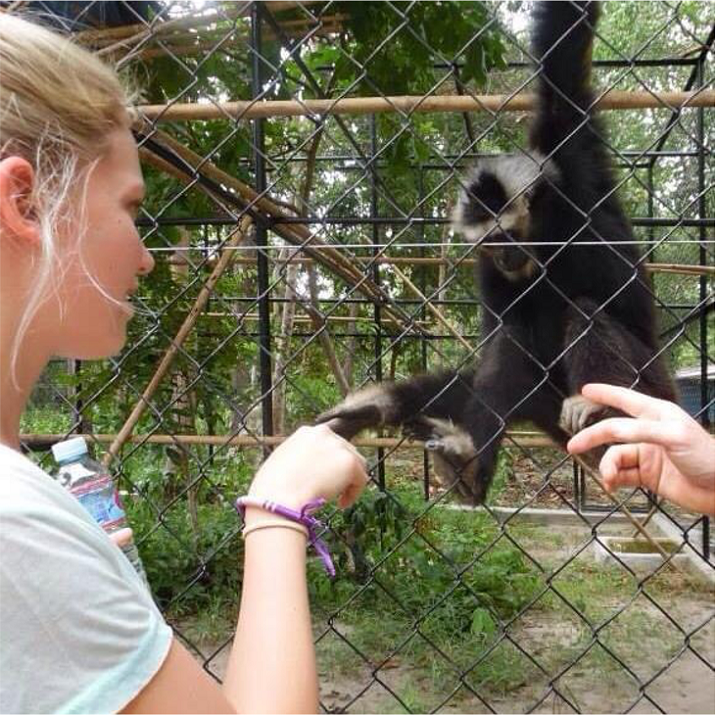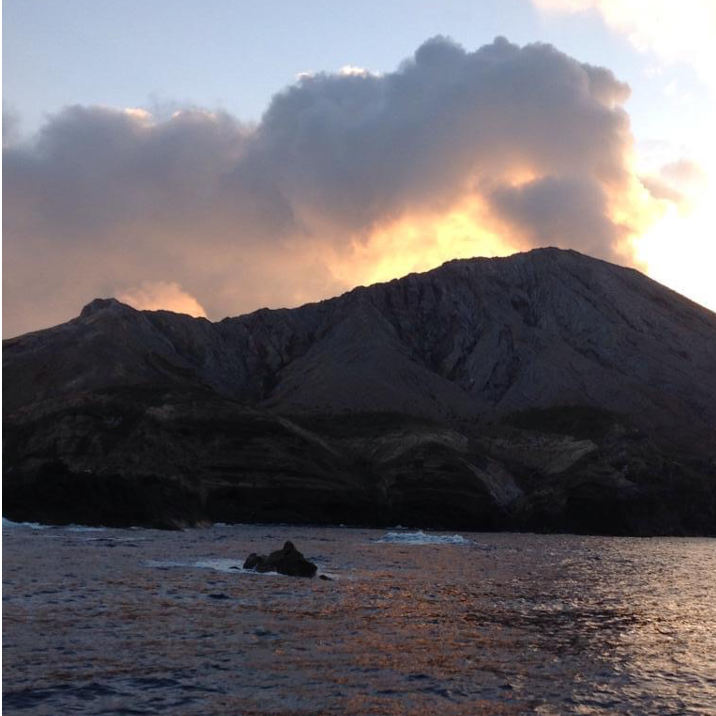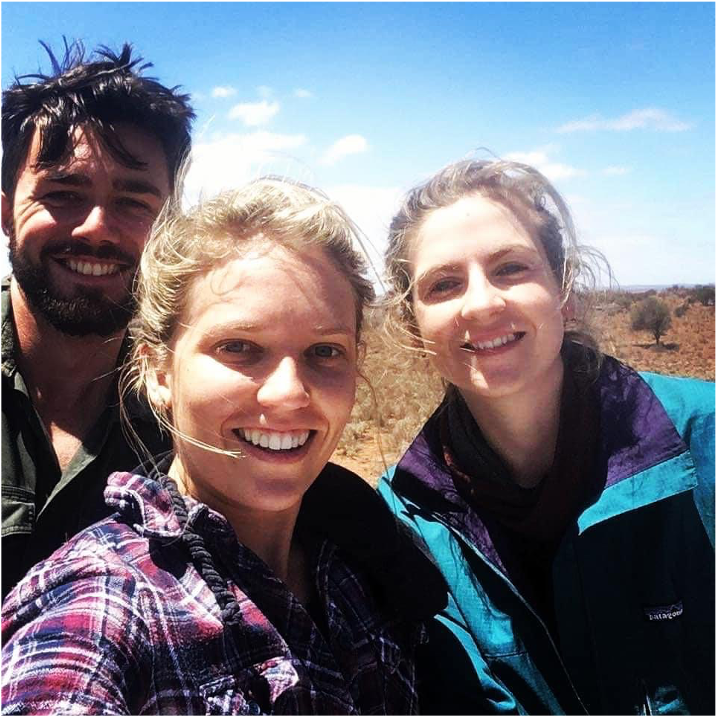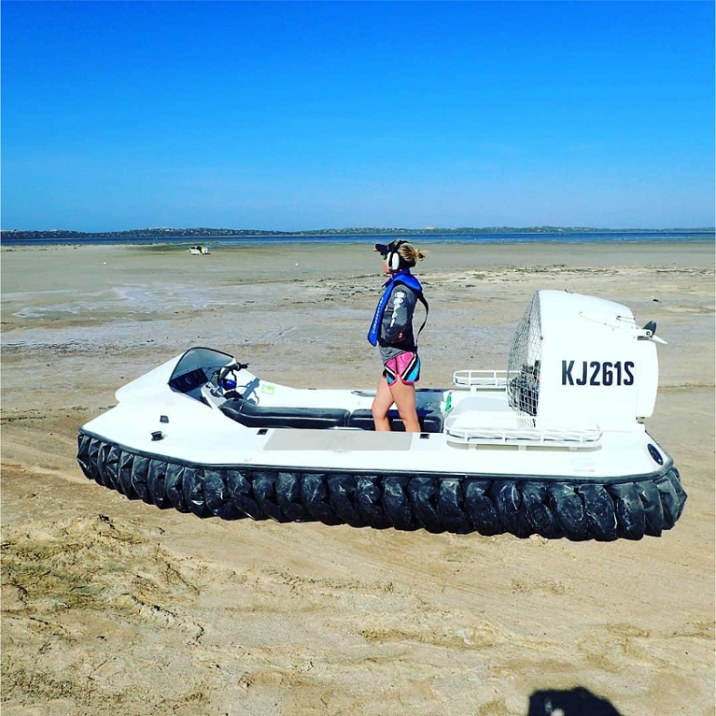Into The Ocean
My PhD is done! What a journey it has been
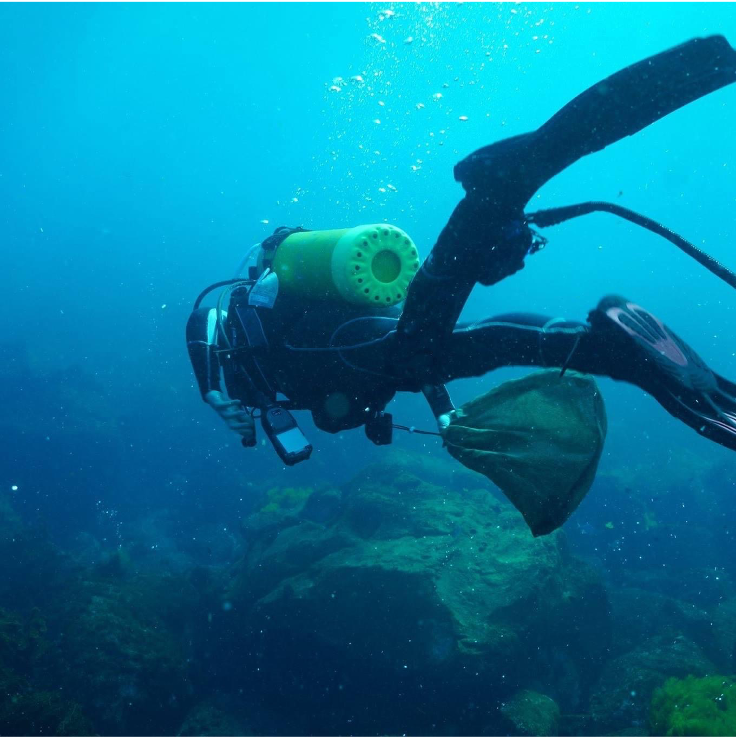
Now that I have finished my PhD, I have had time to reflect on my science career so far and the journey that I've had.
I often hear stories of scientists being driven into their profession from early childhood, however, this wasn't the case
for me, I never found my passion until I got to University. Sure, I was broadly interested in science and maths at school
but I had no clear direction and no real idea of where I wanted my life to go. The pressure to choose my life profession
at such a young age was difficult, what if I messed it up? What if I got it wrong? In the end I opted for a broad
science degree in the hope that experiencing a variety of disciplines would draw me toward one or the other. I did have
one common driving factor, I wanted my work to be meaningful. I wanted to look back on my life at the age of 70 and know
that I had done something that I could be proud of, that I had helped the world be a better place in some way. With this
in mind, I started looking into a career in medical research. Biochemistry was my favourite subject; I was fascinated
with how the body works and the problem-solving nature this medical research entails. There was still a nagging presence
within me to be outdoors, however, so I maintained a handful of subjects related to environment science.
It is weird that one moment in your life can change your whole trajectory, this happened to me in the form of a
documentary. I can't even remember what the documentary was but it discussed the process of bioluminescence in
undersea creatures. This completely grabbed my attention; I was enthralled with the idea that there is so much
undiscovered within our oceans and that complex biochemicals processes that arise naturally can achieve so much.
This helped me discover my passion for oceans and marine life, from here, I heard about a project looking at seaweed
farming for agricultural purposes (Venus Shell Systems) and this inspired me to look at the biochemical processes
within marine plants. I inquired at my university if there was anyone in this field and a week later I found myself
in a room with my current PhD supervisor discussing projects for a 6-week work experience stint. This is where it all began.
I swiftly changed my third-year subjects to include only those related to environmental science, putting me in a more
competitive position for the study tour the University was offering. This tour explored Singapore, Malaysia, Cambodia
and Vietnam to learn about wildlife trafficking, water management and South East Asian culture. You could say the
opportunity to travel in this tour is what pushed me fully into environmental science, however, I have no regrets, as
this trip changed my life. I got to experience a culture that was entirely different to my own, the frustrations I
felt about the way we, as humans, are treating our natural world was flipped upside down. It is easy for me, being a
white women growing up in a place of privilege, getting an education and always having a roof over my head and food
on the table. For others who are not so fortunate, the notion of environmental protection comes second to survival.
If killing an endangered tiger and selling the fur buys food for your family for a year, would you do it? I would.
Before this adventure I was angry that endangered animals were being slaughtered and forests were being cut down,
but after this tour I realised it is not that simple. I cannot be angry at these people for doing what they need to
do to survive. It is the social demand that drives this behaviour and it results from people in places of privilege.
I realised protecting the environment starts with removing the reliance on it by supporting people depending on these
resources. This was a hard but important life lesson to learn and would not have been possible without my science degree.
After my undergraduate degree I moved straight into an Honours degree which took me to the shores of White Island,
New Zealand. This island is a perfect natural environment to study the impacts of ocean acidification due to the
natural CO2 vents found under water. I was able to venture out to these vents' multiple times over an 8-week period,
diving beneath this magnificent volcano to explore how future carbon dioxide emission and subsequent ocean
acidification will impact marine life. Once again, I had an experience that taught me so much, especially how difficult
field-based science can be. Throughout my honours degree I was fortunate to work part time with my current PhD
supervisor which meant I got to conduct frequent field trips to the Coorong South Australia, I have already touched
on the importance of this site in my previous blog. From here, I then started a PhD and it has been a ride ever
since. I was able to travel to Singapore, America, Perth, Canberra and Sydney to attend conferences and workshops.
I made lifelong friends along the way, keeping in touch even though they live halfway around the world. I dealt with
the global pandemic whilst finishing my PhD and in the end not only produced a piece of work that I was extremely
proud of, but also learnt so much about myself. I discovered a resilience and mental toughness that I didn't know I
possessed. I realised a PhD does not test how smart you are, it tests your resilience. The ability to pick yourself
up over and over again despite experiments failing, paper rejections and not getting the result you wanted is a
testament to the passion for science and the desire to make change. That is what I learnt from this journey and
from the friends I completed my PhD with, whom gave me the strength to keep going and through this we built lifelong
friendships.
My scientific journey has been extraordinary I have got to experience some amazing places and contribute to the
world in a way that I never thought I could. I am proud of how far I have come and excited about what the future
holds for me.
